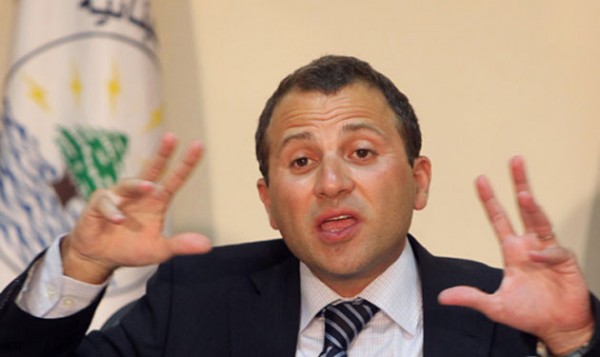 The Change and Reform bloc which is headed by FPM founder General Michel Aoun demanded on Tuesday that an electoral law that offers fair representation be adopted during the upcoming parliamentary elections.
The Change and Reform bloc which is headed by FPM founder General Michel Aoun demanded on Tuesday that an electoral law that offers fair representation be adopted during the upcoming parliamentary elections.
FPM leader Gebran Bassil , Aoun’s son-in-law said after the bloc’s weekly meeting: “We stress our constant support for the Orthodox Gathering electoral law, which has not been given a chance by officials.”
This law offers just representation, but it seems that some sides don’t want this, he added without elaborating.
Change and Reform bloc MP Ibrahim Kanaan revealed early in May that the Orthodox Gathering electoral law has been referred to the parliament bureau for discussion, after the joint parliamentary committees convened to study various electoral draft-laws.
This prompted former Lebanese President Michel Suleiman to tweet : “The Orthodox law violates the constitution in every way.”
The proposed electoral law calls for each sect to elect its own MPs under a proportional representation system based on one nationwide district.
The proposed law had faced severe criticism in the past from the Future Movement bloc and MP Walid Jumblatt’s Democratic Gathering bloc .
Three other draft-laws were also being addressed by the parliament bureau .
They are the hybrid law, proportional law, and majority law.
Speaker Nabih Berri had last Wednesday made a proposal aimed at ending the political impasse in Lebanon.
Hezbollah MP Ali Fayyad outlined last week following the dialogue session the options as outlined in Berri’s proposal:
The first option would be to hold elections on the basis of a new electoral law, after agreement is reached in the parliamentary committee tasked with that role.
The second option would be to hold elections according to the 1960 law. In both cases, parliament would immediately hold a session afterward to vote in a new president.
The third option in Berri’s proposal is “going to a new Doha,” whereby all the political forces would attend a national conference to hammer out a package deal on the presidency, an electoral law, a new government, and future dialogue, according to Hezbollah MP Ali Fayyad.
Some observers regard the idea of a “new Doha” as a step toward a more profound change in the Lebanese system—what some have called a “foundational conference” to change the constitution. Nothing in Berri’s proposal indicates this, but there is a widespread belief among Hezbollah’s adversaries that the party is holding the presidential election hostage to impose changes in the political system that it desires.
Other observers believe that a “new Doha” may be the right move if the “session is well defined, and its agenda specified beforehand. Certainly, going through such a process would better illustrate the true intentions on the speaker’s and Hezbollah’s side. The March 14 parties can test the waters without necessarily risking much at first. Knowing what Hezbollah seeks could be an essential step in ending the presidential vacuum.
But today it seems impossible to hold another Doha , particularly with Iran and Saudi Arabia so hostile to one another and specially since is there no agreement over Lebanon.

Leave a Reply
You must be logged in to post a comment.